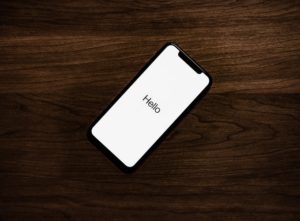Do you have a phone interview coming?
You must be thinking that it would be easy right! Not going anywhere, don’t have to worry about your presentable look, nor about your expression and fake smile to impress the interviewer.
But is it really as easy as it seems?
The answer is No!
Just like in office interviews, phone interviews also require a lot of preparation and equal amount of seriousness.
In this article, you will learn everything about phone interviews and how to prepare for one to land yourself for the next round.
What is a phone interview?
“What is a phone interview and why is it important in the hiring process?”
This is probably the first question that arises after you get a mail or letter stating “Your resume has been selected and there will be a phone interview/telephonic round before the next hiring processes”.
Many companies nowadays prefer phone interviews, once they find the candidate good on paper, they decide to move forward with them with a telephonic interview first.

During this interview you will typically speak with a recruiter rather than the hiring manager and the recruiter will decide whether to move you onto the next stage.
You get not even 30 minutes to prove yourself better than the others. You have to sum up all your knowledge and skills within that limited time and if you leave any wrong or poor impression, things are unlikely to move forward.
Now that you know the concept of phone interview let us move on with the tips and tricks to make it more understandable for you.
Tips and Tricks of phone interview:
#1. How to prepare:
Preparation is the key for every kind of activity, you need to prepare yourself mentally and emotionally for every situation.
First, you need to understand who is calling. If it’s the recruiter then he will not go deep into the details but if it is the hiring manager itself, then he will go deep into all the details you have provided while applying for the job. And then no mistake is pardonable.
#2. Be ready:
Whatever you do, whenever you do, you should always be ready. You need to be ready for the call. Plan and decide on a quiet and familiar place for yourself, it will help you stay calm while on a call.
If something goes wrong and you can not answer the call, inform the interviewer that you will call them back in some time. You can not give your interview while not at your best, they understand that.
#3. How to introduce yourself:
An introduction is very important whether it’s face to face or over a call.

Mentioning your full name is important while on a formal call, like;
“Hello, this is John Brown”
Beginning like this is exactly how they want you to begin like you were expecting this call at that very moment. It shows your attentiveness and seriousness towards the interview, despite being a phone interview. It’s enough to make a good first impression.
#4. Keep good and organized research:
Keeping good information about the organization you will work with is important for you and a plus factor for your interview too.
This will help you understand if the organization is good for you to work in the future or not, and also if the interviewer will ask questions regarding your search of the organization, you can confidently answer those questions.
Your research of the organization/company will show your interest in the organization and work.
#5. Double-check:
Cross-check the requirements and responsibilities the job demands and make sure your expertise matches what’s expected.
Find out about your work responsibilities and position in the organization, and ponder if it fits you or not. And last but not least if it will help you in your future growth.
#6. Keep your resume and LinkedIn profile at hand:
No matter if the interviewer is interviewing you over the phone or in person, they will use your CV/resume as a reference to ask you questions.

It is obvious that you already know your skills, accomplishments, educational details, and everything else you have provided in your resume but sometimes out of anxiety you may forget something, which while cross-questioning, can go against us.
#7. Do not interrupt in between:
No one likes to get interrupted while saying something, I guess not even you.
So you should make sure to avoid interrupting the conversation. Even if you have a query, let the next person on call complete their side of the conversation, then you begin with “sorry to interrupt you, I have a question” or any such formal or polite tone sentence.
#8. Tone:
It’s not the ringtone we are talking about, it’s the tone of your voice and conversation tone.
This is the most important thing you need to take care of on phone calls. We can not see facial expressions or body language on the phone, hence tone is your body language itself.
If the recruiter feels you are not good while talking in terms of tone, he will judge you as a rude person, which can go against you. A polite and calm person makes a better team player, which ultimately at some point any job profile will demand.
#9. Let them take the lead:
Let them start the conversation and always make room for them to complete their conversation, maybe you will get all your answers within that. Do not rush to ask questions.
Make them feel like you are confident and composed during the conversation.
#10. Smile:
You must be thinking that if you are on a phone call, then why do you need to smile. Right?
However, the smile is not to impress the interviewer but for yourself.
Smiling brings a positive vibe, good energy, and also bursts all your anxiety and worries. Smiling during conversation anyway makes you feel confident and prepared.
#11. Prepare questions to ask:
Involvement is very important during the interview. Listening properly and asking questions shows your active involvement in the conversation and the whole interview process.
Try to prepare 2-3 questions prior to the interview, so that you can ask and clear them on call only. This will help you while you will move forward in the interview process in person, as you will go up with a clear sky.
#12. Take notes:
The interviewer can point out some important key points you can work on in your CV or other areas to improve yourself. Hence, taking notes will be a safe and better option.
#13. Thank You note:
The best way to win a chance is to do something exceptional.

Although writing a thank you note is not limited to phone interviews but after a telephonic interview writing a formal thank you note to the interviewer, or the hiring manager may give you grace marks for phone etiquette. And can work as a golden buzzer.
Conclusion:
A phone interview has both advantages and disadvantages. But there is a surety of one thing that you will not have to ‘face’ the tension on call. You can take a pause before answering any question, you can also take a deep breath before answering the call.
So, if you are preparing for any telephonic interview, this article will help you with all the things you need to do to move forward to the next round.